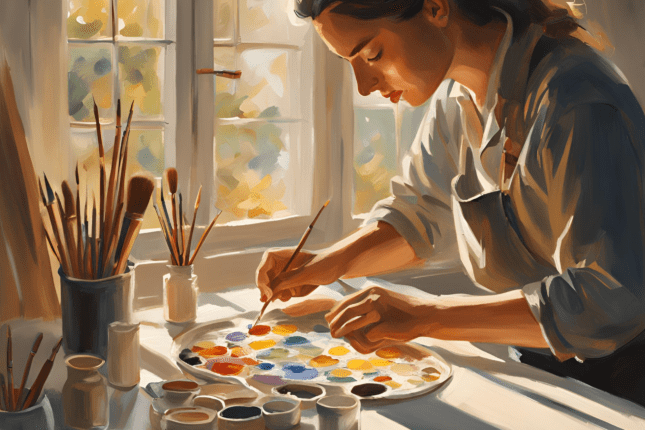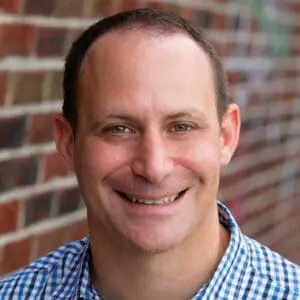Hug my parents for eleven seconds or else they’ll die. Pray to God, then kiss your fingers, or else you’ll have cancer. I had one time where I didn’t have my period for a year, and I thought I was like the Virgin Mary, and I’d pray every night for God to take away the new Jesus Christ that was being born in me. This is how singer Camila Cabello chronicles how obsessive-compulsive disorder (OCD) haunts sufferers with an interminable litany of doubts and protective countermeasures designed to ward off fears. In a recent conversation with Dax Shepard, Cabello spotlighted this condition.
Contrary to what you might see on social media, OCD isn’t a Martha-Stewart-meets-Marie-Kondo devotion to beauty or joy, nor is it the potential for violence found in an M. Night Shyamalan movie involving a serial killer with OCD and mommy issues. It’s a tortuous yet treatable condition many believe can be remedied by evidence-based care that teaches you to “stick with the ick” and “live towards your values” by staring down your worst fears: touching the stranger’s doorknob without washing your hands, entertaining those violent thoughts without seeking reassurance. The consensus seems to be that OCD affects one to two percent of the American population, takes 14 to 17 years to correctly treat, and has just two proven interventions (medication and exposure-response-prevention therapy). Basically, if you’re an OCD sufferer, you can learn, painstakingly and over time, to live with uncertainty like the rest of the population. Science suggests only exposure-response-prevention therapy in combination with medication will help you.
What you won’t hear is that between one-quarter and one-half of people with OCD turn down requests to do exposure-and-response prevention, citing difficulties stomaching it. Nor will you learn that even experts aren’t sure how exactly nature (genes, brain circuitry, or autoimmune reactions) and nurture (defense mechanisms gone awry as a result of trauma) shape OCD. You also won’t hear that a 2023 analysis found that untreated OCD led to an annual loss of over 8.4 billion dollars in the U.S., primarily due to missed work, decreased productivity, and medical costs. With such a big impact, shouldn’t we have more and better options for treating OCD?
Or perhaps, rather than a pure focus on relieving symptoms, researchers and clinicians would benefit from exploring the rich inner life of the OCD sufferer and its hidden potentials.
***
Yes, being so tuned in, especially to fears, can be harrowing, but with OCD, you’re aware of lots of other interesting things too. You have an imaginative and creative mind and a profoundly open and generous heart. You’re more keenly aware of death, but you also see clearly what makes life worth living.
Research shows that those with OCD have higher empathy levels than healthy controls, and they’re attuned to the fragility of the people and world they love. What they need from others is a deeper understanding of what it’s like living with this wide range of feelings, and more compassion for how difficult it is to be so acutely aware of things without punishing oneself for not doing more. They require support in learning how to take up their own space without becoming their worst fear: a narcissistic asshole.
Like notable OCD sufferers Charles Darwin or musician Jack Antonoff, those with OCD constantly tinker with what if scenarios. They go down rabbit holes and get lost in thought spirals, but these same brushes with massive doses of uncertainty also lead to innovation. OCD sufferers are rarely mentored in how to tame this roving mind and capitalize on its many gifts. As writer Elizabeth Gilbert notes, “Possessing a creative mind, after all, is like having a border collie for a pet: it needs work, or else it will cause you an outrageous amount of trouble.” How do we support more clinicians and researchers in tapping into this potential? How do we encourage more therapists to look for the method to the madness within OCD? Imagine how much more quickly and successfully we could treat OCD then!
My unconventional take on OCD is akin to Elaine Aron’s views on the highly sensitive person or Susan Cain’s revision of our understanding of introverts. What if OCD sufferers are driven by OCD because they’re exquisitely aware, imbued with a Shakespearian range of feeling and thought that few have mapped? Many who have OCD, and sense it in others, have been told so many times that what they perceive isn’t really important—and so they’ve tried to dampen their awareness. I believe OCD results from an improper understanding of how to harness the fire of a profound emotional imagination.
Being able to master the capacity to think and feel deeply, in a nuanced way, isn’t just the ultimate task of the OCD sufferer—it’s a skill we need now more than ever.
Michael Alcée
Michael Alcée, PhD, is a clinical psychologist and author of the forthcoming book The Upside of OCD: Flip the Script to Reclaim Your Life.












